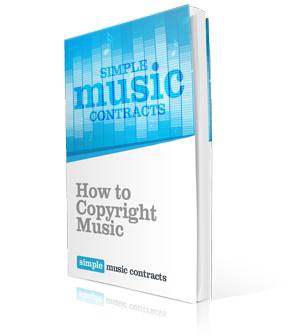Written by US Music Attorney with 20 Years Experience
Download Instantly in Word
Five New Contracts a Month
One Year of Updates
A Look At Music Agent Contracts
Some of the best shows I’ve ever seen were at small dive bars with only a handful of people in attendance. For many of these, I don’t remember the band name or much else, other than the fact that they were good and it was a shame more people didn’t get to see the incredible show I saw. While there’s definitely something to be said for bands to develop there chops in small venues, there comes a time in every band’s life when they need to get their music out to a larger audience. Often, this is where a music agent becomes crucial.
One of the main jobs of a music agent is to secure quality bookings at reputable venues. In a nut shell: the booking agent get your band in front of more people, more quickly than you can by booking your own shows. Depending on the level of the band, the music agent’s role can be narrow or far-reaching, but as the liaison between the artist and the venue, it’s up to them to not only book the show, but make sure everything runs smoothly and everyone, in the end, gets paid. And as always when money’s involved, this is where the contract comes into play, and though the specific agreements will vary for each situation, the following are points that should always be discussed.
After starting with the basic names and signing dates, the contract will then state the General Duties of the agent. This will, of course, vary depending on the terms the artist and agent worked out before signing the contract, but will outline exactly what the agent is expected to do on behalf of the artist. If duties are restricted to just booking shows, this portion will explain this; if the agent is responsible for other promotion and business duties, this will be stated, as well.
Next, the contract will provide the Rights of the Agent. These rights will explore how the artist must refer any booking and other touring inquiries to the agent, and, usually, that the agent will become the exclusive agent and representative of the musician.
Of course, the contract will include the all-important Compensation of Agent agreement. Agents usually make a percentage of gross funds from a booking, and this percentage will be made official in this portion of the contract. This section will also include when the payment is due, and what penalties occur if payment is not made within that time frame.
Length of time of the artist-agent relationship varies widely, but the Duration and Termination of Agreement section will provide the length of the agreement, as well as what factors would constitute a termination of the agreement.
Since an agent is not (usually) employed directly by the artist, a clause in the agreement is needed stating that the agent is an Independent Contractor. This will state that the agent isn’t entitled to employee benefits and must pay all income tax obligations, among other provisions.
The remainder of the contract will likely carry many other stipulations that are common in other music contracts, such as damages and severability clauses. These aren’t necessarily as unique to music agent contracts as the above points, but are extremely important in protecting the rights of both the artist and the agent.
A music agent can be one of the most crucial elements in a band’s road to fame, but as with any music relationship with the possibility of large sums of money becoming involved, the music agent contract can prevent many fights and lawsuits in the future.

